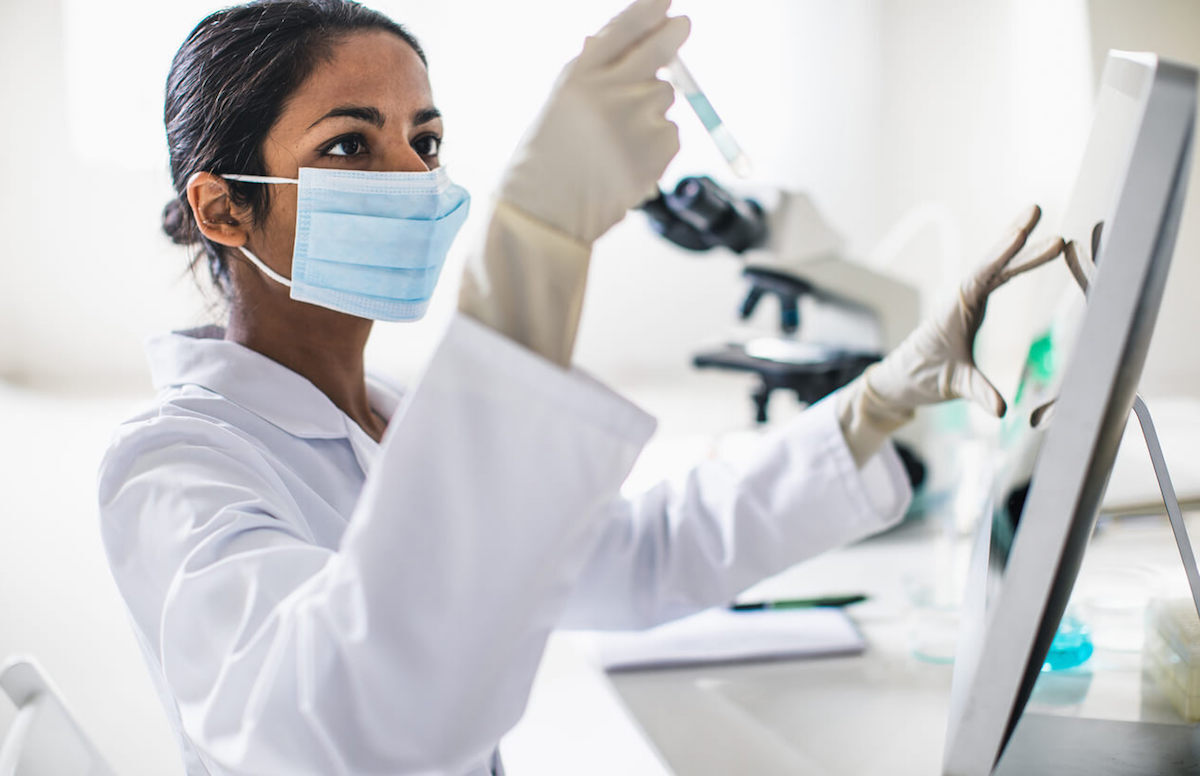
Biomedical science, a field at the forefront of medical breakthroughs, plays a pivotal role in understanding diseases, developing treatments, and improving public health. Biomedical science encompasses a wide range of disciplines, from molecular biology to medical technology, each contributing to the vast landscape of healthcare innovation. For anyone curious about how diseases are diagnosed, what goes into creating new medications, or how genetic disorders are studied, this field offers endless intrigue. In this introduction, we'll uncover 17 fascinating facts about biomedical science, shedding light on its importance, the challenges scientists face, and the impact of their discoveries on our everyday lives. Perfect for those with a keen interest in science and medicine, these insights will deepen your appreciation for the complexities and achievements of biomedical science.
What Is Biomedical Science?
Biomedical science is a field that combines biology and chemistry to study the mechanisms of life and how they relate to health and disease. This discipline plays a critical role in understanding diseases, developing treatments, and improving healthcare outcomes. Biomedical scientists work in laboratories, conducting experiments and research to push the boundaries of medical knowledge.
- Biomedical science is the backbone of modern medicine, providing the research foundation for diagnosing, treating, and preventing diseases.
The Role of Biomedical Scientists
Biomedical scientists are vital in the medical field, working behind the scenes to ensure accurate diagnosis and effective treatment of diseases. They analyze samples, conduct tests, and research disease processes.
- These professionals are essential in developing new treatments and vaccines, significantly contributing to public health and safety.
Educational Pathways in Biomedical Science
Pursuing a career in biomedical science typically requires extensive education, starting with a bachelor's degree in biomedical science or a related field, followed by further specialization through master's or doctoral programs.
- Specializations within biomedical science include microbiology, pharmacology, and genetic engineering, among others, allowing scientists to focus on areas of interest or high demand.
Breakthroughs in Biomedical Science
Biomedical science has been responsible for some of the most important medical breakthroughs in history, including the development of vaccines, antibiotics, and new cancer treatments.
- One notable achievement is the creation of CRISPR-Cas9, a revolutionary gene-editing technology that has the potential to treat genetic disorders.
The Impact of Biomedical Science on Public Health
Biomedical science has a profound impact on public health, with its advancements leading to increased life expectancy and improved quality of life.
- Vaccination programs, one of the many contributions of biomedical science, have eradicated diseases like smallpox and drastically reduced the incidence of conditions such as polio and measles.
Challenges Facing Biomedical Science
Despite its advancements, the field of biomedical science faces several challenges, including ethical dilemmas, funding shortages, and the need for interdisciplinary collaboration to tackle complex health issues.
- Ethical considerations, especially in genetic research and human trials, pose significant challenges, requiring careful deliberation and oversight.
The Future of Biomedical Science
The future of biomedical science holds promise for further groundbreaking discoveries and innovations. With advancements in technology and research methodologies, scientists are poised to tackle some of the most pressing health challenges of our time.
-
Personalized medicine, driven by genetic information, is one area of focus that could revolutionize how diseases are treated, making therapies more effective and reducing side effects.
-
Another exciting prospect is the development of artificial organs, which could alleviate the shortage of organ donors and transform transplant medicine.
Biomedical Science and Technology
Technology plays a crucial role in biomedical science, from advanced imaging techniques to the use of artificial intelligence in diagnosing diseases.
-
Machine learning algorithms are increasingly used to analyze complex biological data, leading to faster and more accurate diagnoses.
-
The use of 3D printing in biomedical science has opened up new possibilities in tissue engineering and the creation of prosthetic limbs, offering hope to many.
Global Health and Biomedical Science
Biomedical science has a global impact, addressing health issues that cross national boundaries and contributing to international health initiatives.
-
Efforts to combat global health crises, such as the COVID-19 pandemic, rely heavily on biomedical research for vaccine development and therapeutic strategies.
-
Collaboration between countries and disciplines is essential in the fight against global health threats, highlighting the importance of biomedical science in fostering international partnerships.
Biomedical Science and Environmental Health
The relationship between the environment and human health is an area of increasing focus within biomedical science, examining how environmental factors influence disease.
-
Studies on the effects of pollution, climate change, and exposure to toxic substances contribute to our understanding of environmental health risks.
-
Biomedical scientists play a key role in developing strategies to mitigate these risks, protecting public health and the environment.
Ethics in Biomedical Science
Ethical considerations are at the forefront of biomedical science, guiding research practices and the application of new technologies.
-
The use of human subjects in research, genetic privacy, and the potential for genetic discrimination are among the ethical issues that biomedical scientists must navigate.
-
International guidelines and ethical committees help ensure that biomedical research is conducted responsibly, balancing scientific progress with respect for human rights.
-
As biomedical science continues to evolve, so too will the ethical frameworks that govern it, ensuring that advancements benefit humanity while minimizing harm.
A Final Glimpse into Biomedical Science
Biomedical science stands as a cornerstone in understanding human health and disease. Through this field, scientists unlock mysteries of the human body, leading to breakthroughs in treatments and diagnostics. It's a realm where curiosity meets innovation, driving advancements that save lives and improve quality of life. For anyone intrigued by the complexities of biology and medicine, this field offers endless opportunities for discovery and impact. Remember, every fact we've explored is a stepping stone to deeper knowledge and potential cures for the world's most pressing health challenges. As we continue to push the boundaries of what's possible in biomedical science, let's stay curious, keep questioning, and never stop learning. After all, today's research could lead to tomorrow's miracle.
Was this page helpful?
Our commitment to delivering trustworthy and engaging content is at the heart of what we do. Each fact on our site is contributed by real users like you, bringing a wealth of diverse insights and information. To ensure the highest standards of accuracy and reliability, our dedicated editors meticulously review each submission. This process guarantees that the facts we share are not only fascinating but also credible. Trust in our commitment to quality and authenticity as you explore and learn with us.


